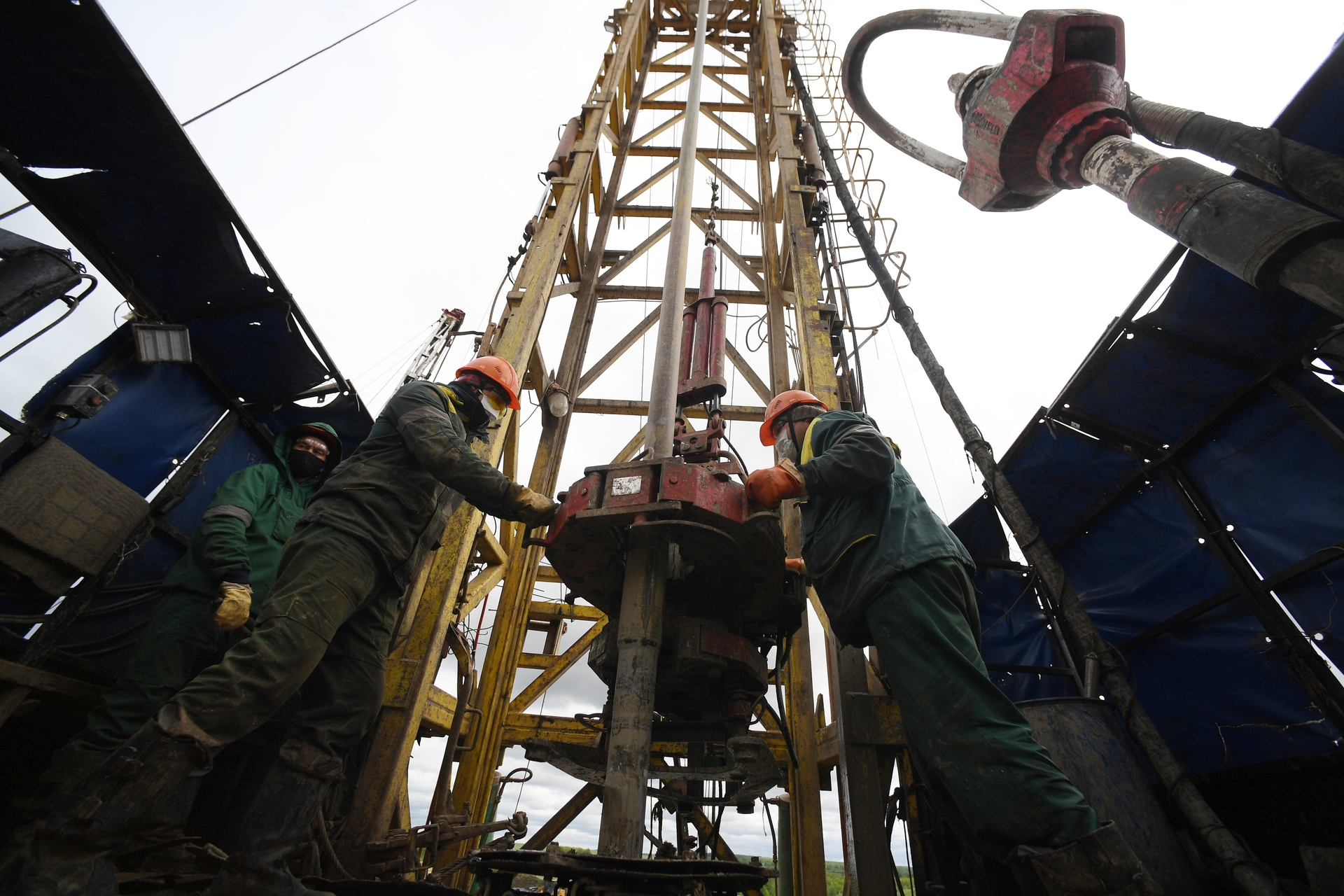In 2020, the share of the oil and gas sector in the structure of Russia's GDP fell to 15.2%.
This is evidenced by the materials of Rosstat.
According to the ministry, the indicator has been steadily declining over the past two years.
So, back in 2019, the corresponding value reached 19.2%, and in 2018 - 21.1%.
As explained in Rosstat, the oil and gas sector of the economy includes enterprises that extract crude oil and natural gas, as well as produce goods and services related to the extraction, processing, transportation and sale of energy raw materials.
In addition, the segment includes a number of companies that provide ancillary activities.
According to Rosstat estimates, in 2020 the gross domestic product of Russia amounted to about 107 trillion rubles.
Thus, the oil and gas sector accounted for about 16.3 trillion rubles.
“The decline in the share of the oil and gas sector last year is due to several factors.
Firstly, this is a drop in global demand for energy in the context of a pandemic and, as a result, a collapse in average prices for oil and gas in the world.
Secondly, the OPEC + deal, under which Russia reduced oil production, played a role, "Vasily Karpunin, head of the information and analytical content department at BCS World of Investments, explained in an interview with RT.
Note that in 2020 the average oil price in the world fell by almost a third - to $ 41.3 per barrel.
At the same time, the gas price index fell by more than 25% to 45.5 points.
Such data are provided by the World Bank.
Against this background, according to the calculations of the Ministry of Energy of Russia, from January to December the production of oil and gas condensate in the country decreased by 8.5% - to 512.8 million tons.
The achieved figure was the lowest in the last nine years.
In turn, gas production fell by more than 6%, to 692.9 billion cubic meters, the lowest level since 2016.
As a result, the volume of oil and gas revenues of the Russian budget at the end of last year fell by 30.4%.
This is stated in the report of the Accounts Chamber.
RIA News
© Maxim Bogodvid
As noted in an interview with RT
Olga Belenkaya, head of the department of macroeconomic analysis at FG Finam, 2020 has become a period of “forced reduction of dependence” on oil and gas for the Russian economy.
According to the expert, in general, the energy market has become one of the worst affected as a result of the lockdowns caused by the pandemic.
Meanwhile, a number of other industries, on the contrary, showed significant growth.
“Industries such as chemicals, pharmaceuticals, furniture, finance and insurance, agriculture, and information and communications have made a positive contribution to GDP.
This trend has also led to a decrease in the share of oil and gas budget revenues, ”the specialist emphasized.
According to the Accounts Chamber, non-oil and gas revenues to the Russian treasury increased by 3.2% at the end of 2020.
In turn, the share of supplies of non-primary goods abroad increased to 48%, according to the materials of the Russian Export Center.
Similar statistics are provided by the Federal Customs Service.
According to the ministry, in the commodity structure of Russia's exports in 2020, the share of fuel and energy products fell from 62.1% to 49.6%.
“In 2021, the share of the oil and gas sector is likely to grow, but is unlikely to return to the level of 2019. Some of the restrictions under OPEC + may be additionally removed, and oil prices may rise even more. Nevertheless, in the long term, a further decrease in this share is possible, subject to the diversification of the economy and the development of other sectors, "said Valery Mironov, deputy director of the Center for Development Institute at the Higher School of Economics, in an interview with RT.
According to him, a decrease in the share of the oil and gas sector in the future will help protect the economy from possible risks in the event of another collapse in the global energy market.
A similar point of view was previously expressed by the country's President Vladimir Putin.
In December 2020, during the annual press conference, the head of state called the reduction of dependence on hydrocarbons one of the key "elements of economic development."
As the Russian leader emphasized, already today almost 70% of the federal budget is formed not at the expense of oil and gas revenues.
“This means that we are not fully, but nevertheless, we are starting to get off the so-called oil and gas needle.
And if someone still wants to represent us as a gas station, then this no longer has a real basis.
Although the dependence is still very large, and we must keep this in mind, ”Putin stressed.

